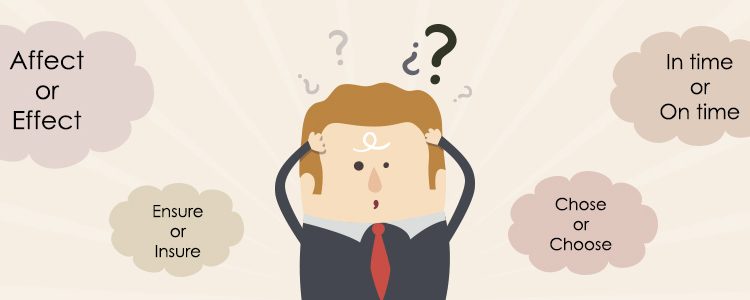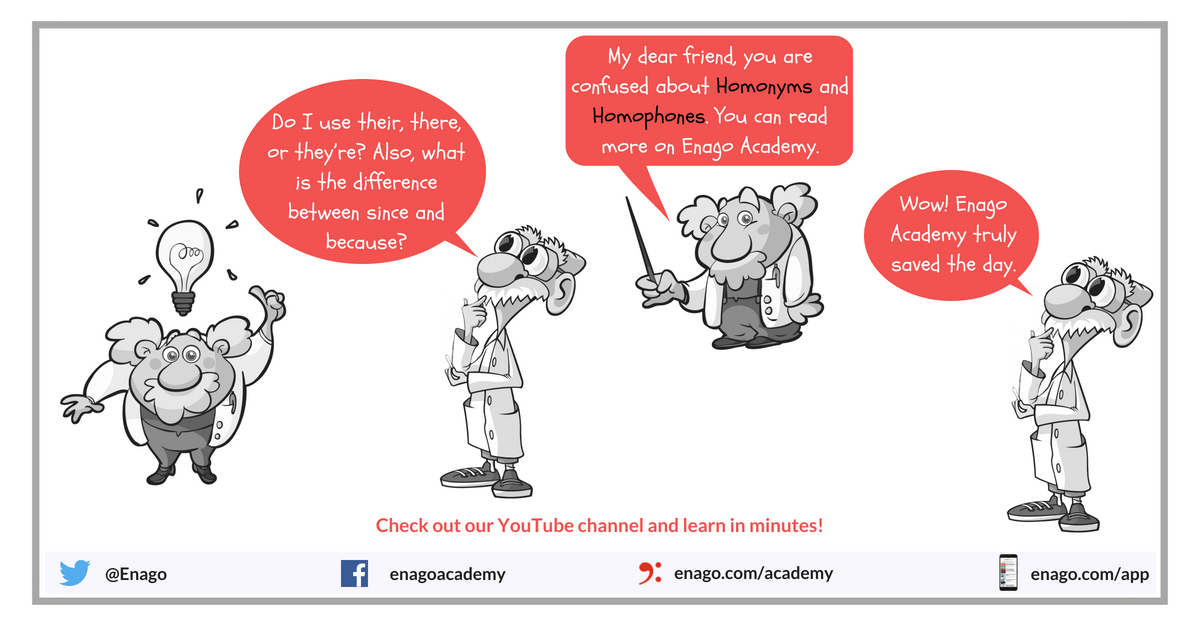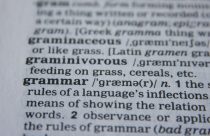Word Choice in Academic Writing: Commonly Confused English Words

As an academic researcher, a part of the writing process that often causes confusion and leads to common mistakes is the word choice. While writing in English, maintaining the correct word choice is quite difficult for both ESL researchers and for native English speakers who are not experienced writers. In English, there are many pairs or sets of words that sound and/or look alike but have different meanings, as well as those that sound and look different but have similar meanings. Understanding the meaning and use of both pairs or the set of words in any of these scenarios is essential for improving the language and content of the written study. Here we go through some commonly confused English words that many ESL authors commonly use and provide examples on how they can be used appropriately in academic articles.
Homonyms
Homonyms are words that sound and/or alike but have different meanings. We have listed some homonyms that are frequently used in academic writing. The explanations will help you understand the correct choice based on the usage.
Affect vs. Effect
Affect is a verb that means “to exert influence” or “make a difference to.”
Example,
- Did the drug affect the patients?
Effect can be used as both a noun and verb depending on the context.
Example:
- We were curious if the drug had any effect (n).
- The Aharonov–Bohm effect (n) is a quantum mechanical phenomenon in which an electrically charged particle is affected by an electromagnetic potential.
- The Ministry of Finance effected (v) many immediate policy changes in this quarter.
Accept vs. Except
Accept is a verb that means “to agree” or “to trust.”
Example,
- My grant application was accepted.
Except can be used as a preposition, a conjuction, or a verb and it means “not inclusive” or “other than.”
Example:
- All of the students passed the exam except (p) for one.
- Most of the data obtained did not reveal anything significant, except (c) that some protocols could be optimized for future experiments.
- The patients under treatment for cancer are excepted from the survey.
Their vs. There vs. They’re
Their is an adjective that means “relating to” or “belonging to”
Example:
- It is their
There is a noun that refers to a place.
Example,
- We had to park over there.
They’re is a contraction that means they are.
Example,
- They’re going to the store.
Tip: In academic writing, always avoid the usage of contractions (such as can’t, don’t, and shouldn’t).
To vs. Too vs. Two
To is typically used as a preposition.
Example,
- To determine the nature of the compound, we tested its activity.
Too is an adverb that means “in addition” or “also”
Example,
- We performed the extra analysis, too.
Two is the number (2).
Example,
- The experiment was performed with two
Then vs. Than
Then can be used as adverb that means “at that time” or “next in a series”. It can also be used as an adjective and a noun.
Example,
- First they tested sample A, then (adv) sample B was tested.
- The experiment was performed according the requirements then (adj).
- Let us examine how this experiment turns out; we can decide how to proceed then (n).
Than is a conjunction and preposition that is used to link two things that are being compared.
Example,
- Group A decreased more than the control group.
Homophones
These words do not sound alike or look alike, but they have similar meanings and often they are used incorrectly in academic writing. The below list is not exhaustive but gives you a clear idea of misinterpretations.
Although vs. While
Although is a conjunction that is used to indicate a contrast.
Example,
- Although the data seemed correct, the researcher attempted to verify the results.
While is a conjunction that is used to indicate a time and can also be a noun when it refers to a period of time.
Example,
- The experiment was conducted while it was raining.
Since vs. Because
Since can be used as a preposition, a conjunction, or an adverb that and it refers to the time between the intervening period and the time under consideration.
Example,
- The student has not been home since he started college.
Because is a conjunction that is used to show causation.
Example,
- I want to analyze the data because I am curious about the results.
If vs. Whether
If is a conjunction that is used to explain the result or the effect of something that may happen or be true, i.e., “if” can be used to start a particular condition.
Example,
- Put your pencil down if you are done with your exam. (This is conditional because you only need to put your pencil down if you are done with the exam).
Whether is a pronoun that refers to a choice between alternatives.
Example,
- Put your pencil down whether or not you are done with your exam. (This not conditional because you have to put your pencil down either way.)

Changing Rules?
Ensuring correct language and grammar in scientific articles is particularly important when sending your paper to well-known journals such as Nature, Science, and Cell. Although many journals do consider the importance and impact of the study even if the paper is poorly written, peer reviewers particularly find it difficult to evaluate a paper that is written with poor language and grammar. Considering the several rules of grammar in the English language, it is important to keep improving your language skills. A well-written manuscript not only gives the journals and the editors a good impression, it also gives you the chance to convey your research in a clear and concise manner.









